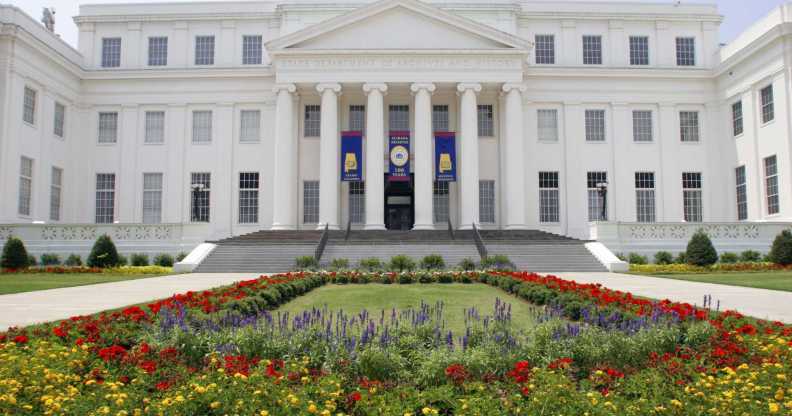Alabama lawmakers seek to slash funding from state archives after LGBTQ+ history lecture

Conservative lawmakers in Alabama are so unhappy about the state Department of Archives and History hosting a lecture on LGBTQ+ history that they’re trying to cut its funding. (Getty Images)
Conservative lawmakers in Alabama are so unhappy about the state Department of Archives and History hosting a lecture on LGBTQ+ history that they’re trying to cut its funding. (Getty Images)
Conservative lawmakers in Alabama are so unhappy about the state Department of Archives and History hosting a lecture on LGBTQ+ history that they’re trying to cut its funding.
The 15 June lecture, entitled ‘Invisible No More: Alabama’s LGBTQ+ History’, explored a number of topics including the state’s first Pride march and the contributions and achievements of queer Alabamians.
It ran as part of the department’s educational lunchtime series, Food for Thought, and was presented by Dr Maigen Sullivan, co-founder of the Invisible Histories Project, a non-profit documenting the history of LGBTQ+ people in the Deep South.
In response, Republican senator Chris Elliott confirmed that he would be introducing legislation at next week’s special session of the legislature strip $5 million of funding from the Department of Archives and History.
Senator Elliott said his intention was to “claw back” a $5 million supplemental appropriation to the department.
“Make no mistake, It is to send a message to the Archives and History Department, and to other bureaucracies throughout the state, that we don’t believe this is a topic appropriate for the Alabama Department of Archives and History,” Elliott said, as reported by the Associated Press.
According to Elliott, around 10 lawmakers opposed the lecture so strongly that they had requested it be cancelled, but the Department of Archives and History went ahead with the educational talk.
Other topics in the ‘Food for Thought’ series this year included the Reverend Martin Luther King, Alabama’s state mammal, the black bear, and rock and blues guitarist Duane Allman.
Although Elliott had not actually watched the lecture himself, he said it was inappropriate to discuss LGBTQ+ history because “the underlying differentiating factor is sex”. The Republican senator said there are “all kinds of other places to discuss those issues”.
In a letter to lawmakers on Friday (14 July), director of the Alabama Department of Archives and History, Steve Murray, wrote that the lecture “was consistent with the mission of the Archives” to educate on the history and resources of the southeastern state.
Murray explained that the lecture series programme did not receive public funding, other than a federal grant via the Alabama Humanities Alliance to pay a stipend to each presenter.
According to Murray, the $5 million of state funding that Elliott intends to take from the department is money planned for museum upgrades. The cash is earmarked for a new military gallery, a new children’s gallery and the redesign of Indigenous American exhibits.
“The Archives respects the authority and responsibility of the legislature to appropriate funds as you see fit,” Murray wrote. “We hope you will make an informed decision based on familiarity with the June 15 program and awareness of our agency’s commitment to integrity and service in the promotion of evidence-based history.”
Although next week’s special session is focussed on new congressional map drawing and will require support of two-thirds of lawmakers to pass legislation on other issues, Elliott reportedly believes he has the numbers.
The full ‘Invisible No More: Alabama’s LGBTQ+ History’ lecture is available to watch online.

